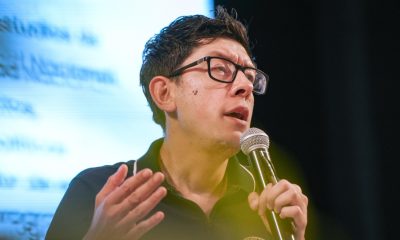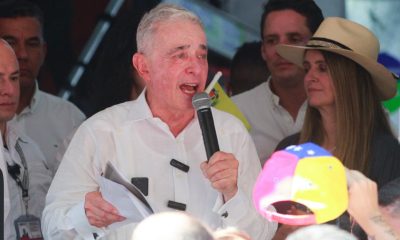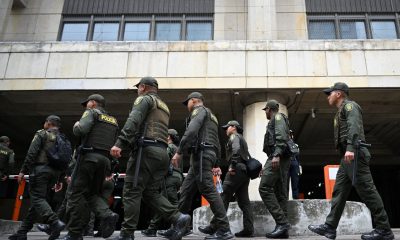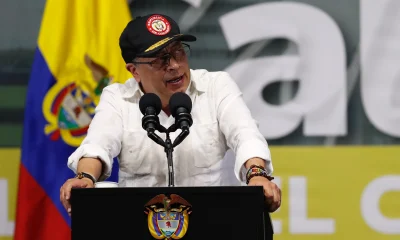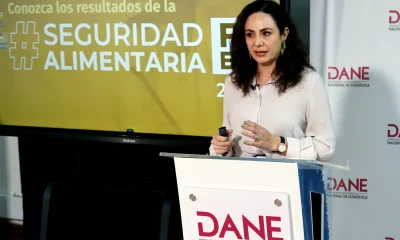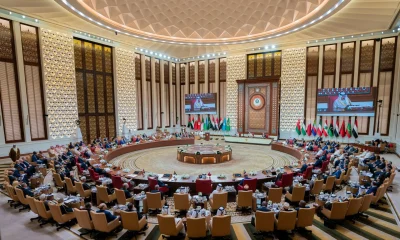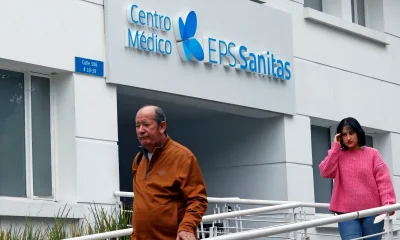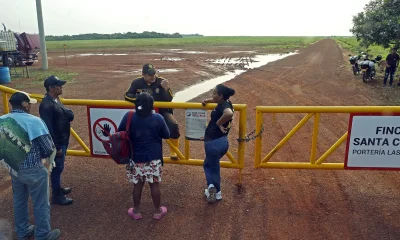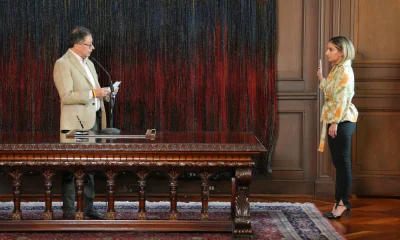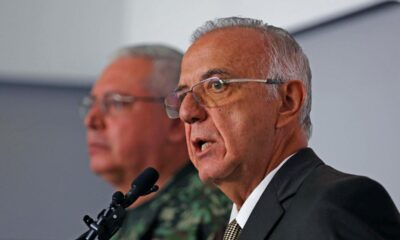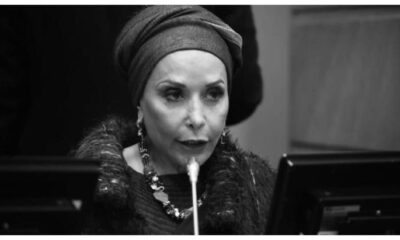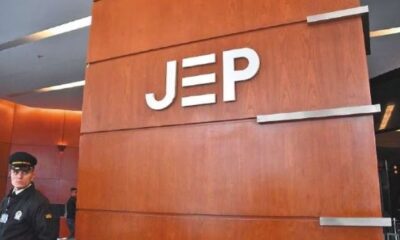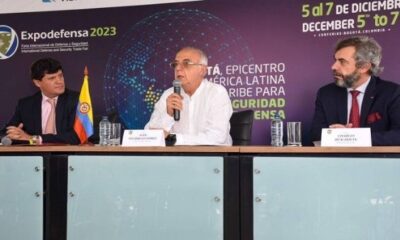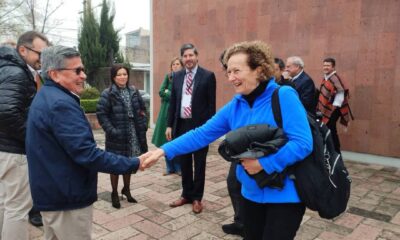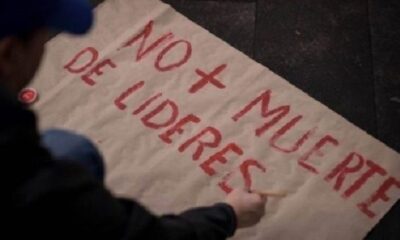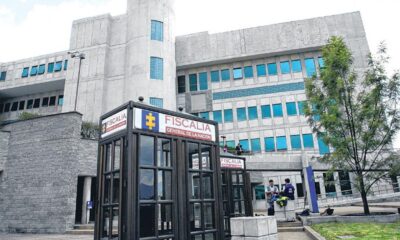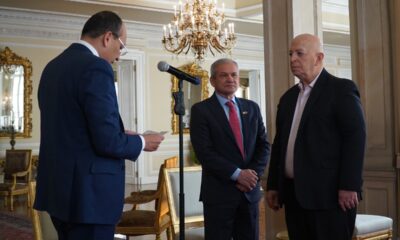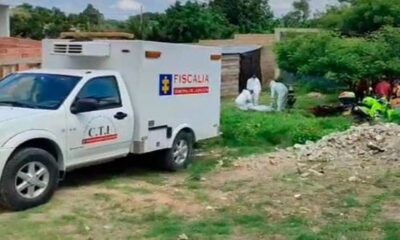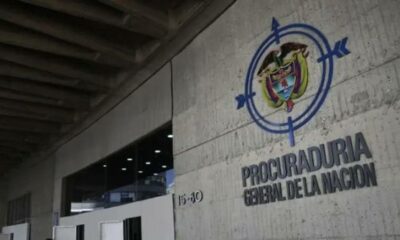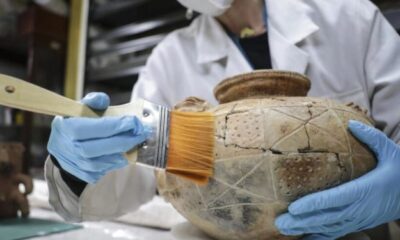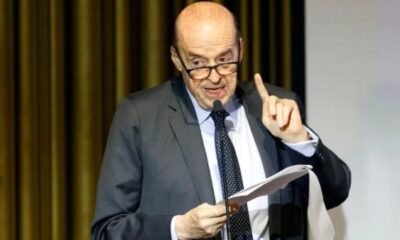International
Colombian State to apologize for false positives in Soacha
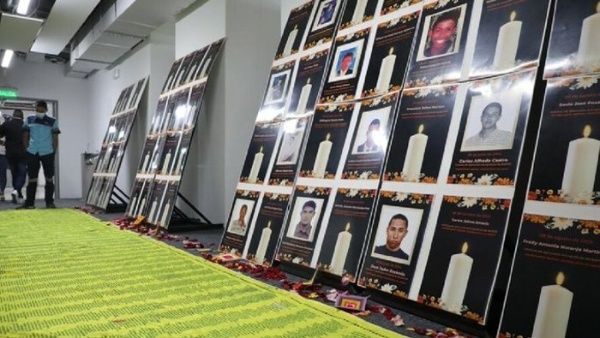
September 28 |
Colombian human rights organizations confirmed Thursday that the Colombian State will publicly ask for forgiveness on October 3 for the false positive cases of the Soacha youths, killed in Catatumbo by members of the Army.
According to the organizers, the act of recognition of responsibility will take place in the Plaza de Bolivar and will be headed by the Colombian Minister of Defense himself, Ivan Velasquez.
Asociación Minga and Colectivo José Alvear Restrepo (Cajar), explained that the request for state pardon is framed within the restoration measures established by the Administrative Court of Cundinamarca in 2015, prior to the signing of the Peace Accords, within the case of victim Jaime Estiven Valencia Sanabria.
The act of recognition comes after several days of concertation and were managed to unlock under the Government of Gustavo Petro, stating that several measures were “insistently denied” by previous ministers.
In this sense, from the Cajar explained that “…it is publicly acknowledged that State agents committed crimes that the high military commanders and the former President of the Republic during the period in which they happened, Alvaro Uribe Velez, have tried to minimize and even justify for years. We consider this one more step to confront the impunity that has surrounded these cases”.
El Cajar recalls that this is an “act of recognition of state responsibility” and “includes families covered by sentences of other courts in which the military forces and the National Army were ordered to make public apologies to the victims and society, as well as other victims of extrajudicial executions in which the justice system proved the responsibility of the State but did not order acts of public apology”.
The organizers explain that “although the pain of the families cannot be compensated with anything, this act of public apology can be reparative for them and, we hope, for Colombian society as well”.
They also recall the responsibility of “who was President of the Republic during the period in which they happened, Álvaro Uribe Vélez, (which) they have tried to minimize and even justify for years”, for which they consider “this is one more step to confront the impunity that has surrounded these cases, to honor the memory of those who today are not physically with us and to exalt the struggle of the families who, despite the difficulties to access justice, continue in their search”.
International
Claudia Sheinbaum: Operation Against ‘El Mencho’ Was Based on Pending Arrest Warrants

Mexico’s President Claudia Sheinbaum on Wednesday rejected claims that the military operation that resulted in the death of Nemesio Oseguera Cervantes, known as “El Mencho,” leader of the Jalisco New Generation Cartel (CJNG), was carried out under pressure from the United States government.
Sheinbaum explained that the deployment of federal forces was aimed at executing outstanding arrest warrants against Oseguera Cervantes, who was considered one of the most wanted criminals in both Mexico and the United States.
“That was not the objective (to ease pressure from the United States). It is very important, and I want to repeat it. This individual had an arrest warrant, or several,” Sheinbaum said, referring to the operation conducted on February 22.
According to the president, the initial goal was to capture Oseguera Cervantes, but military forces responded after coming under attack during the intervention.
“The operation was to detain him. The problem is that they were attacked — the Secretariat of National Defense — and they responded at that moment,” she said.
The president insisted that the action was not carried out in response to external demands, although she acknowledged intelligence cooperation with the United States.
“It was not done in any way because of pressure from the United States, not at all. Of course, there was intelligence information from the United States that was used specifically,” she concluded.
International
Spain Denies Any Agreement to Cooperate with U.S. Military in Iran Operations
International
White House Says Spain Agrees to Cooperate with U.S. Military After Trump Threatens Trade Embargo

White House Press Secretary Karoline Leavitt said Wednesday that Spain has agreed “in recent hours” to cooperate with the U.S. military, following President Donald Trump’s threat to impose a trade embargo on Madrid.
Trump had warned of potential commercial measures after Spain reportedly refused to allow the Pentagon to use facilities at Spanish military bases for operations related to Iran.
“With respect to Spain, I think you heard the president’s message yesterday loud and clear, and I understand that in recent hours they have agreed to cooperate with the United States military,” Leavitt said during a press briefing.
She added that the U.S. military is currently coordinating with its counterparts in Spain. However, the president expects broader support.
“The president expects that all of Europe, all of our European allies, of course, will cooperate in this important mission — not only for the United States, but also for Europe,” Leavitt said.
Her remarks came in response to questions about Spain’s position and its role as a U.S. ally amid rising tensions surrounding operations involving Iran.
-

 International3 days ago
International3 days agoIran Reports 201 Dead, 747 Injured After U.S. and Israeli Strikes
-

 International3 days ago
International3 days agoPope Leo XIV Urges End to ‘Spiral of Violence’ in Middle East
-

 International2 days ago
International2 days agoBrazil’s Supreme Court Rejects Bolsonaro’s Bid for House Arrest
-

 International4 days ago
International4 days agoSecurity Council to Hold Emergency Meeting on Middle East Crisis
-

 Sin categoría4 days ago
Sin categoría4 days agoTrump: ‘We Think It’s True’ Amid Claims Iran’s Supreme Leader Was Killed
-

 International2 days ago
International2 days agoAnti-ICE Billboard Campaign Targets Immigration Spending in 31 U.S. Cities
-

 International2 days ago
International2 days agoTrump Warns of ‘Major Wave’ of Attacks as Iran Conflict Escalates
-

 International2 days ago
International2 days agoMexico Calls for Immediate Probe After National Dies in ICE Custody
-

 International1 day ago
International1 day agoSpain’s Prime Minister to Address Nation Amid Trump’s Trade Threats
-

 International2 days ago
International2 days agoBolivia Orders Three Investigations Into Deadly Military Plane Crash
-

 International1 day ago
International1 day agoNew York Announces First 2,000 Seats in Universal 2-K Program
-

 Central America2 days ago
Central America2 days agoPanama Canal Monitoring Trade as Middle East Conflict Disrupts Shipping
-

 Central America1 day ago
Central America1 day agoGuatemala’s Attorney General Fails in Bid for Top Court Seat Amid Corruption Allegations
-

 International1 day ago
International1 day agoWarner Bros. Developing First ‘Game of Thrones’ Movie With ‘Andor’ Writer
-

 International3 hours ago
International3 hours agoWhite House Says Spain Agrees to Cooperate with U.S. Military After Trump Threatens Trade Embargo
-

 International3 hours ago
International3 hours agoSpain Denies Any Agreement to Cooperate with U.S. Military in Iran Operations
-

 Central America3 hours ago
Central America3 hours agoNicaragua Held Responsible for Harassment of Opposition Prosecutor and His Family
-

 International3 hours ago
International3 hours agoClaudia Sheinbaum: Operation Against ‘El Mencho’ Was Based on Pending Arrest Warrants































